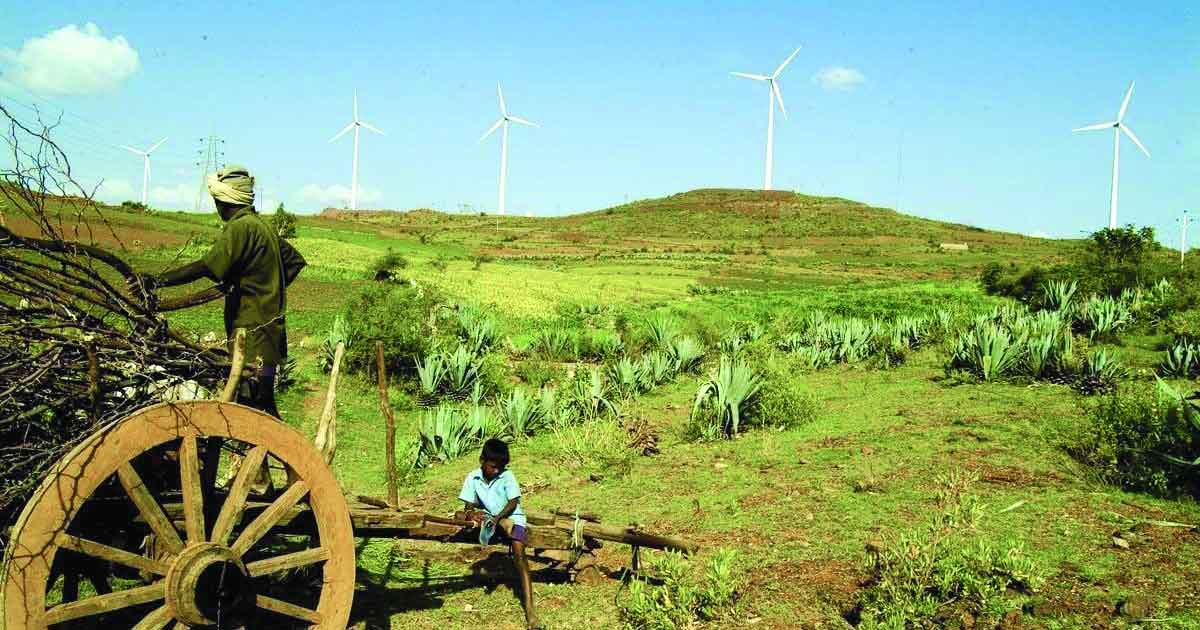To ensure that its ambition to install 30,000 megawatt of offshore wind power by 2030 does not come at the cost of the marine ecology health, the Government has proposed that lease of wind farm in the sector will be cancelled if they are found posing threat to flora and fauna beneath the sea.

This is one of the major reasons for lease cancellations proposed in the draft Offshore Wind Energy Lease Rules, 2019 issued by the Ministry of New and Renewable Energy (MNRE). The Ministry is now seeking suggestions and opinion from the public about the proposed rules. The rules also propose penalty to the defaulter project proponent in the form of fine and jail imprisonment, if found violating the norms.
As per the draft rules, lease of an offshore wind power project can be cancelled if it is found to be “causing environmental damage to both flora and fauna beneath the sea and posing threat to human life and property while carrying out the activities under water and operation of the wind energy turbines during validity of the lease.”
The draft rules also maintains that “If, in the opinion of the Central Government, operation of the wind turbines/wind turbines is causing damage to environment or damage to property, or pollution can thereby be prevented, the Central Government may order the Wind Farm to be shut down pending an enquiry under sub-rule (a), which enquiry shall be held within a reasonable period of the making of such order.”
In offshore wind farms, wind turbines are elevated over the sea level with different types of foundations, depending on the depth. The large-scale deployment of offshore wind farms is the part of the Government’s shift to renewable energy. Offshore wind power projects are used to exploit the potential of wind in open seas, where wind blows stronger than on land.
The rules follow the national offshore wind energy policy which was notified in October 2015, providing a basic framework for development of offshore wind energy in the country.
As per the policy, offshore wind energy blocks will be allocated to successful bidders through global bidding.
It also stipulates that “if the holder fails to comply with the terms and conditions of the lease without sufficient reasons or to furnish the required information’s in any manner as per the provisions under this rule, if detected during the inspections authorised by the Central Government, shall be punishable with imprisonment for a term of six months with determined fine by the Central Government. “Failure to pay fine by the lessee would entail imprisonment for further period of six months.”
The draft rules also state that “every lessee shall have the exclusive right to carry out, in addition to geological and geophysical surveys data, other studies relating to geo-technical survey and investigations and testing operations required for development of offshore wind energy installations or/and related activities in the area covered under the lease but shall not have the overall right to sublease any part of the area covered under the lease”.
It emphasised that the lessee also has the right to carry out the development works like construction of buildings, waterways, roads, evacuation infrastructure (cables), offshore substations, underwater electric cables but “shall have no right to minerals and other resources in the lease area,” stressing that the lease does not confer rights for mineral extraction or access to resources beneath the sea bed and sea water.
It also maintains that those granted the lease “shall have no right to block/bar/restrict the entire area under this lease from any routine activities, as felt necessary for the purpose of livelihood and other activities that could coexist with the offshore wind energy farm, in the interest of common public” provided those activities have no potential to harm the project.
At present, most of the installed wind power in India is concentrated in two regions – the southern States of Tamil Nadu, Karnataka and Andhra Pradesh and the western States of Maharashtra, Rajasthan and Gujarat.
At present, of the total installed power capacity of 349,288.22 megawatt (MW) in India, renewable accounts for over 21 percent (74,081.66 MW). And of the total installed renewable capacity, onshore wind alone accounts for over 47 percent (35,138.15 MW).
source@pioneer